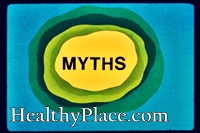Myths About ADHD
-
 Myth: ADD/ADHD only affects children - It is difficult to estimate how many ADHD children become ADHD adults, but it's thought to be around the 50% mark! Although hyperactivity subsides later in life, in its place is left an overwhelming feeling of restlessness. Also, many of the planning and organization problems encountered by the ADHD child are taken into adulthood.
Myth: ADD/ADHD only affects children - It is difficult to estimate how many ADHD children become ADHD adults, but it's thought to be around the 50% mark! Although hyperactivity subsides later in life, in its place is left an overwhelming feeling of restlessness. Also, many of the planning and organization problems encountered by the ADHD child are taken into adulthood. -
Myth: Parents are to blame for their children's condition - Many parents are told that by the very people who they go to for help. People who blame parents for this condition are ignorant, stupid, or even possibly, both. For the parent still struggling to find a reason for their child's problems, this may be difficult to accept. There is nothing like a mother's guilt! With education, of course, comes knowledge and once a parent accepts that they are no more to blame than the parent of a physically disabled child, they can move forward in a positive fashion.
-
Myth: More boys than girls have ADHD - Apart from girls manifesting the symptoms differently than boys, there has also been much LESS research done on females. On top of this, the diagnostic criteria, which fits the male model of ADHD, is still used as a tool for diagnosing girls. Boys frequently stick out more because of their boisterous, overactive behavior. It is thought that more girls have the "spacey ADD" and have more learning difficulties than their male counterparts.
-
Myth: ADD is over-diagnosed - This depends on how you look at it. However, it's believed that ADHD is under-diagnosed in Great Britain at the present time. One reason is because parents are afraid to bring their suspected ADHD children into the doctor. Unfortunately, they're concerned about the use of stimulant medication in treating children. The media here has presented a very negative picture of that.
What these people are forgetting though, is not all ADHD-diagnosed children are on medication. Some parents use other strategies such as dietary measures, homeopathy and nutritional supplements, to name just a few. Many parents are now wanting to try the natural or holistic approaches to managing ADHD. -
Myth: Ritalin zonks out children or turns them into zombies - Complete rubbish. These emotive statements are put out by extremists who know little about ADHD and it's effects. Like ANY medication, the pros and cons have to be looked at before taking any course. Stimulants do have side-effects sometimes. These are well documented. A parent or practitioner looks at these possible side-effects and weighs them up against the possible improvement in the quality of life of the sufferer. No one forces anyone to take stimulant medication. If a parent finds that Ritalin doesn't suit her child, she is at liberty to take the child off.
-
Myth: ADHD can be cured with the correct discipline - Unfortunately this misconception is rife amongst other parents and many professionals. Parents of ADHD children in fact instill MORE disciplinary measures than ordinary parents. We have to, because our children challenge so many more boundaries. Another thing to consider is the difference between inability and non-compliance. Punishing a child for something that they have no control over is cruel. ADHD kids don't enjoy being in trouble the whole time and do not bring further aggravation on themselves for amusement. Anyone who says ADHD can be cured by discipline is misguided.
-
Myth: A child who can concentrate sometimes, can't have ADHD - A child who can't concentrate on mundane, boring or repetitive tasks can actually hyper-focus on something which he or she is really interested in. Computer games, and the like, are very stimulating to the ADHD child. It's a "one-on-one" situation and there's usually plenty of action to keep their interest. Because they can concentrate on something which they are REALLY interested in, it doesn't mean they CAN'T have ADHD.
next: Why Am I Different?
~ back to Wild Child homepage
~ adhd library articles
~ all add/adhd articles
APA Reference
Staff, H.
(2007, June 6). Myths About ADHD, HealthyPlace. Retrieved
on 2026, March 3 from https://www.healthyplace.com/adhd/articles/myths-about-adhd
